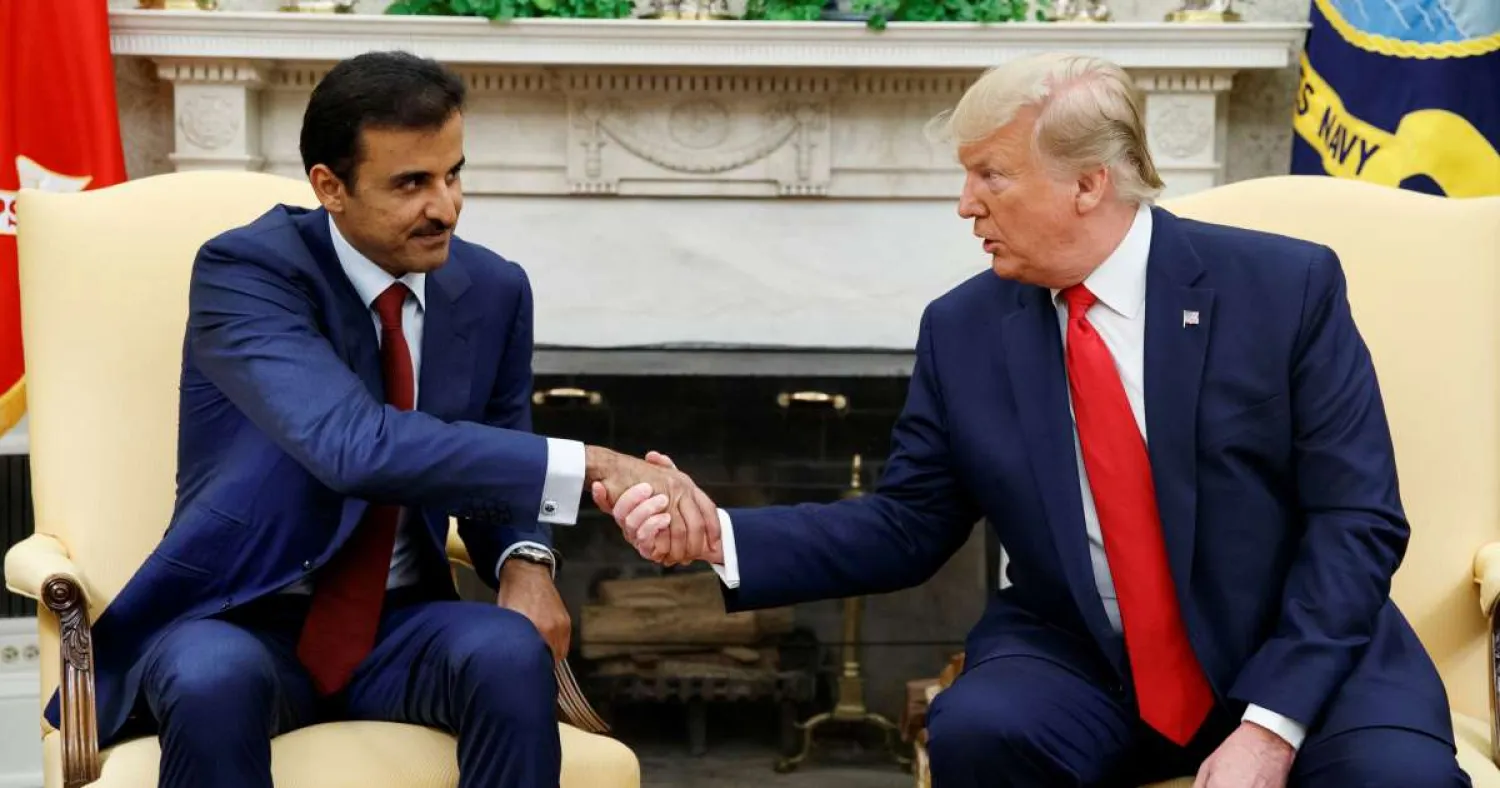US President Donald Trump welcomed at the White House on Tuesday Emir of Qatar Sheikh Tamim bin Hamad Al Thani, praising Doha for financing the Al Udeid Air Base in the Gulf country.
"They built one of the great military bases I would say anywhere in the world," Trump said. "It's just been expanded with runways and everything else."
Sheikh Tamim said that Doha will sign agreements with Washington worth more than $185 billion.
Five commercial agreements were signed. Qatar Airways is buying five Boeing 777 Freighters and large-cabin aircraft from Gulfstream Aerospace and plans to use General Electric Co. jet engines to power its Boeing aircraft.
Sheikh Tamim’s visit came at a time of increased tensions between the US and Iran as the latter continues to make threats to further abandon the 2015 nuclear deal signed with world powers. It recently increased its uranium enrichment activities in breach of the accord.
American officials revealed that the Emir proposed to mediate between Washington and Tehran. One White House official acknowledged the relations between Doha and Tehran, but dismissed Qatar’s ability to play an effective role in easing the tensions.
Analysts said that Qatar was trying to exaggerate its role in the Middle East, while some military commanders in the Trump administration have urged the president to pressure Doha to cut ties with Iran.
In an open letter to Trump published by NBC, former commander of US Central Command Air Forces General Charles Wald urged the president to inform Sheikh Tamim that he stood to lose the Al Udeid base if he does not sever Doha’s ties with Tehran.
He said the base “allowed our planes to get into position for operations in Afghanistan, a crucial mission in defense of our country. That conflict isn’t over, and the United States’ need for strategic posts in the Middle East is as great as ever, particularly as tensions with Iran mount.”
“Yet, it is the very danger posed by Iran that leads me to call for the Al Udeid Air Base to be closed if Qatar doesn’t change its behavior. It has shown support for Iran, which has been the world’s foremost abetter of state-sponsored terrorism and ill-will in the Middle East and the very one we are prepping to combat,” Wald went on to say.
“In this current climate, where Iran is accused of attacking foreign oil tankers and US drones and has announced it’s accelerating work on its nuclear program, Qatar must choose: It can keep its US air base or its ties to Tehran,” he stressed.









